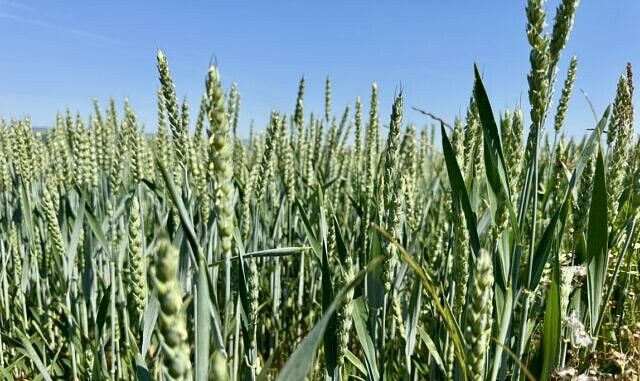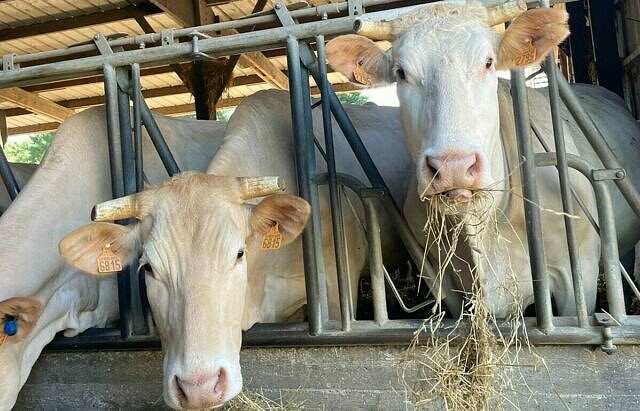Südzucker-Moldova pioneers Moldova’s first FSA-verified farm
1st July 2025
As the first company in Moldova to implement the Farm Sustainability Assessment (FSA), Südzucker-Moldova is setting a new benchmark for sustainable agriculture in the region.

Overview
Implementing the Farm Sustainability Assessment (FSA)
SAI Platform recently spoke to Dr Valeri Nicusor to understand Südzucker-Moldova’s experiences and insights as its agricultural enterprise, Agro-SZM, set out to integrate the FSA to improve resource efficiency, reduce environmental impact, and strengthen its long-term business resilience.
What inspired Südzucker-Moldova to adopt the FSA and what impact has it had?
Dr Valeri Nicusor: Adopting the FSA system has helped Südzucker-Moldova to strengthen its market position as a sustainability-oriented company, improve production efficiency and minimise environmental risks. It has also played a key role in the long-term strategy to achieve sustainability, providing a competitive advantage in a market that increasingly demands environmentally friendly and socially responsible production solutions.
Tell us about the farm where the FSA was implemented?
Dr Valeri Nicusor: Agro-SZM SRL our agricultural division was set up in 2008 and has since been a key part of Südzucker Moldova. Each year we invest on average 15 million lei into strengthening its infrastructure and technology. Today, Agro-SZM manages over 13,000 hectares, including 3,200 hectares dedicated to sugar beet, spread across five districts in northern Moldova: Ungheni, Falesti, Drochia, Donduseni, Ocnita. Thanks to long term agreements, we’ve been able to reclaim previously abandoned land and commit to investment projects with returns over 10 to 15 years, steadily improving both productivity and sustainability.
Has the FSA changed how you work with suppliers and your local community?
Dr Valeri Nicusor: Implementing the FSA system has had a positive ripple effect across our entire business including our relationships with partners, suppliers and the wider community. We’ve seen improvements in the sustainability of agricultural production, but also in building trust and more transparency into the business, as well as enhancing our reputation and competitive edge in the marketplace.
The FSA has more broadly embedded sustainability principles into Südzucker-Moldova’s corporate culture. We’ve become more proactive in addressing social and environmental issues which has shaped how we engage with the public, reinforcing our commitment to long-term sustainability.
What tangible on-farm improvements have you seen while using the FSA?
Dr Valeri Nicusor: Since adopting the FSA at Agro-SZM, we’ve seen real, measurable improvements across how we operate and in the results we’re achieving. It’s helped us become more efficient, more sustainable, and more mindful of our social and environmental responsibilities. Some of the key outcomes we’ve encountered include:
1. Smarter resource use in terms of better management of water and fertilisers, with less waste and fewer losses.
2. Higher yields and product quality including improved soil health which has helped reduce erosion and boosted fertility.
3. Improved economic efficiency by optimising inputs which has cut costs and made fuel and energy use more efficient.
4. Healthier soils and more biodiversity as we’ve incorporated more sustainable practices which are protecting our land for the long term.
5. Stronger workforce engagement as using the FSA has facilitated training and upskilling which have increased motivation and confidence across our team.
Overall, the FSA has been a major step forward in building a more resilient and future-fit farming business.
What challenges did you face while implementing the FSA and how did you overcome them?
Dr Valeri Nicusor: Implementing the FSA wasn’t without its challenges. As with any change, there were hurdles to overcome, however, each challenge also became an opportunity to grow. How we approached them was to address:
1. Knowledge gaps: At the start, there was limited understanding of sustainable agriculture and how to use the FSA tools. We therefore invested in training and workshops, covering everything from sustainable practices to technology use and proper reporting.
2. Resistance to change: Some team members were hesitant, unsure of how the changes might impact their work. We took a gradual, ‘small steps’ approach, sharing early success stories in agronomy and resource use to build confidence and buy-in.
3. Shifting mindsets: Moving away from traditional methods required a cultural shift. We focused on motivation and clear communication, helping everyone see the practical benefits from cost savings to a better quality of life at work.
By taking a thoughtful and comprehensive approach, we were able to turn these challenges into real improvements that boost efficiency, reduce costs, raise product quality and environmental performance.
Has the FSA opened new opportunities, such as market access, partnerships or recognition for Südzucker-Moldova or the farm itself?
Dr Valeri Nicusor: Absolutely! Adopting the FSA has opened up a range of new opportunities for us, both within the industry and in the communities where we work.
Stronger market reputation: The FSA has helped position us as a sustainability-focused company. It’s sparked interest not just from customers, but also from industry groups and environmental organisations. We’ve been invited to speak at forums, conferences, and trade shows giving us a platform to share our progress.
Industry recognition: Thanks to the FSA, Agro-SZM is now seen as a company that meets international standards for sustainability and environmental responsibility.
Verification and awards: Gaining FSA vertification has led to further recognition through awards and certifications. That’s helped build trust with our partners and made our products more attractive in the marketplace.
Deeper community engagement: The process has also encouraged us to strengthen our social commitments. We’re working more closely with local communities, supporting rural development, investing in employee training, and backing local initiatives.
This is the first FSA verification in Moldova. What role do you see the FSA playing in Moldova’s agricultural future?
Dr Valeri Nicusor: The first FSA verification in Moldova represents a key milestone toward a more efficient, resilient and sustainable agricultural sector. It’s not only a technical achievement, but a clear signal that Moldovan farming is embracing internationally recognised farming principles, practices and standards.
By aligning with global sustainability expectations, the FSA strengthens our country’s position in export markets, particularly within the EU, and enhances credibility with international partners.
Equally as importantly, the FSA increases transparency and makes the sector more attractive to investors seeking responsible, future-ready businesses.
As both a benchmark and a learning tool, the FSA is helping to lay the foundation for a more resilient and competitive agricultural future.


